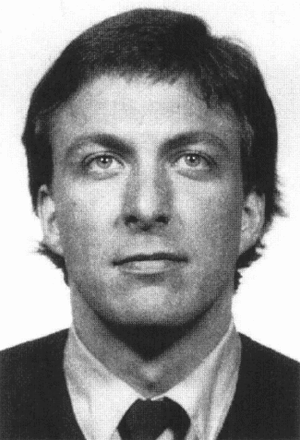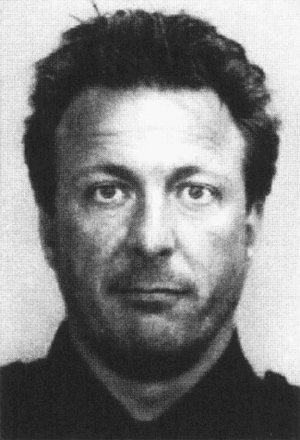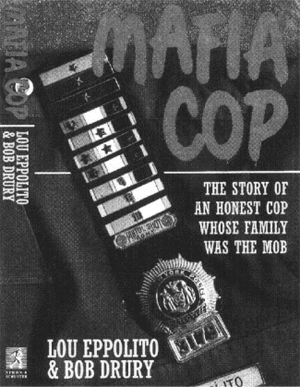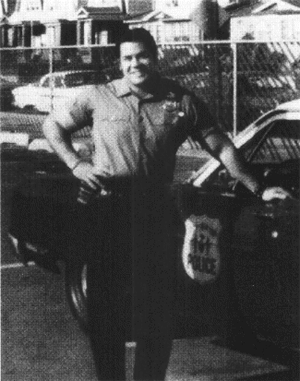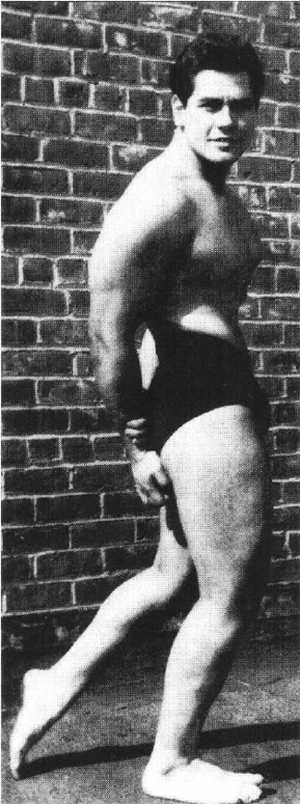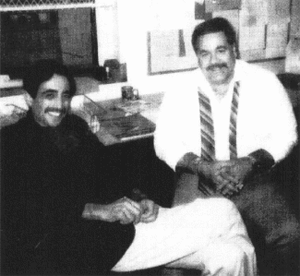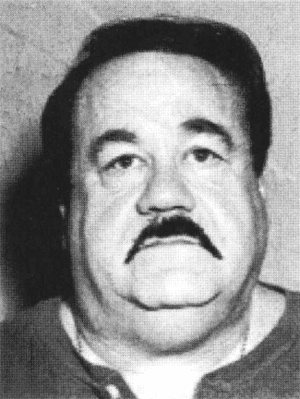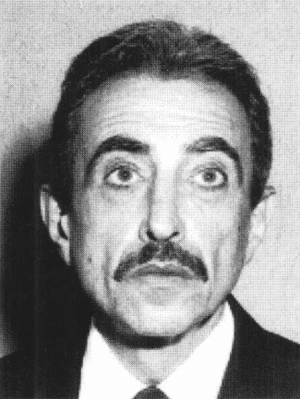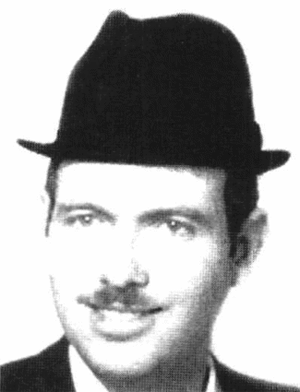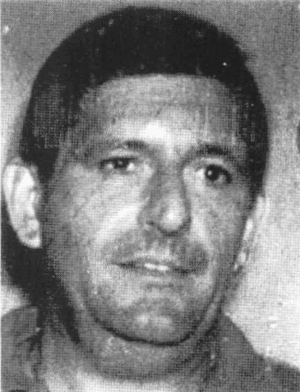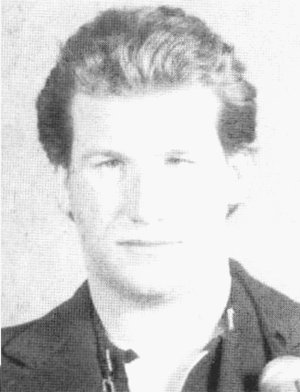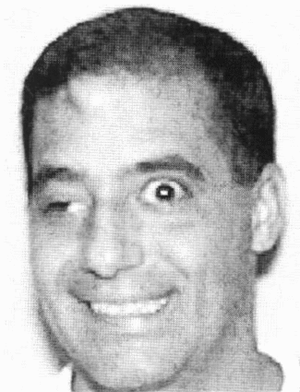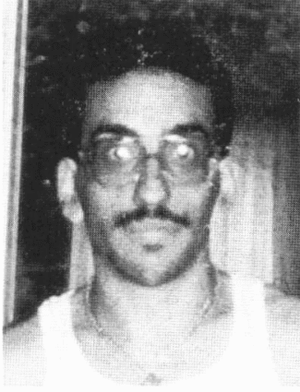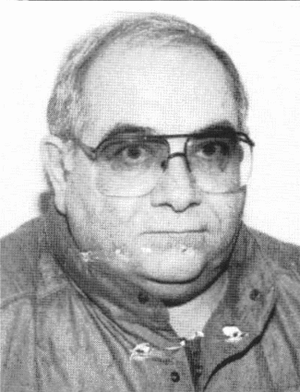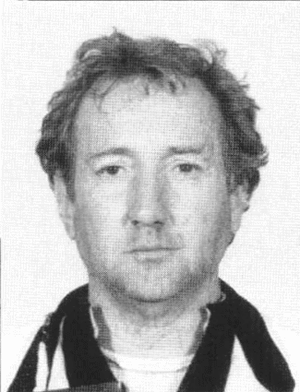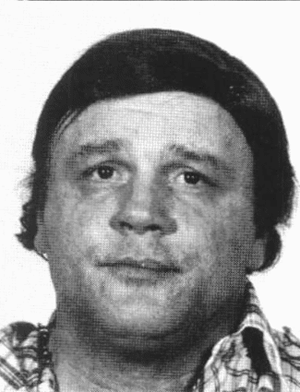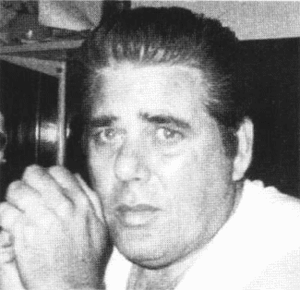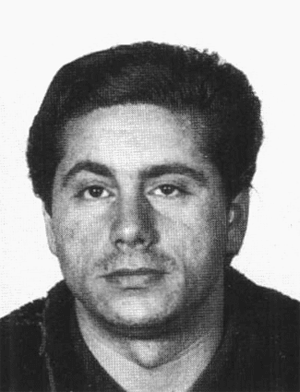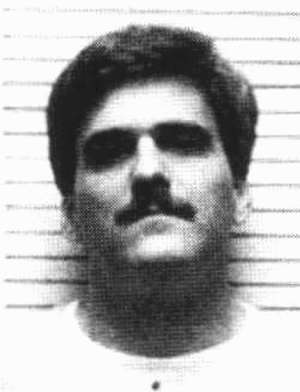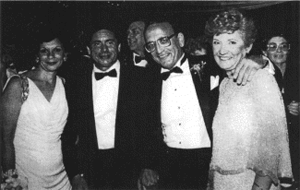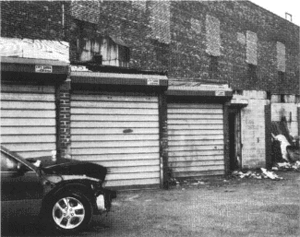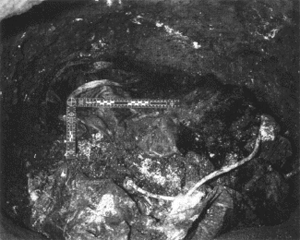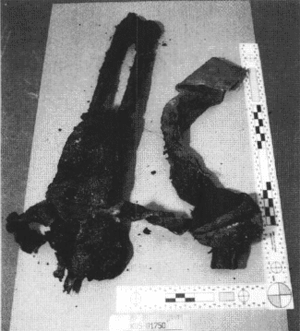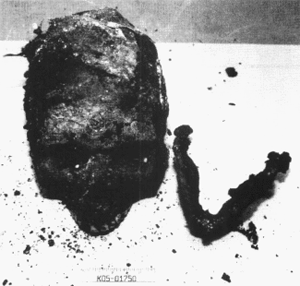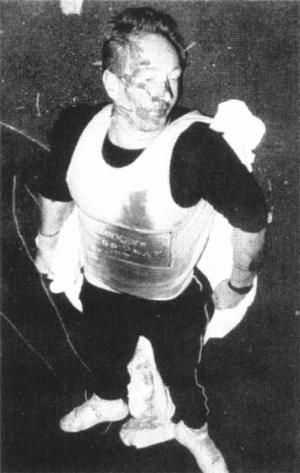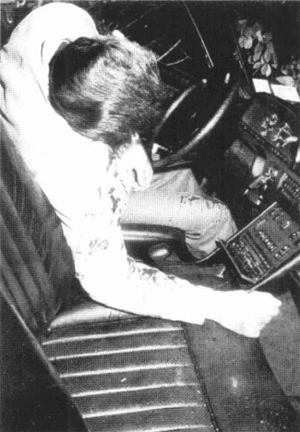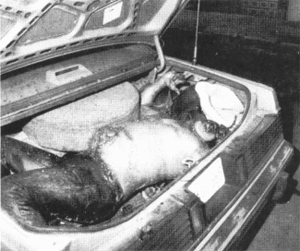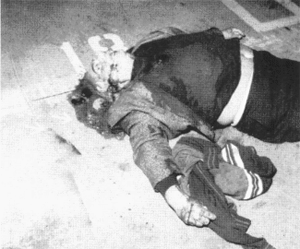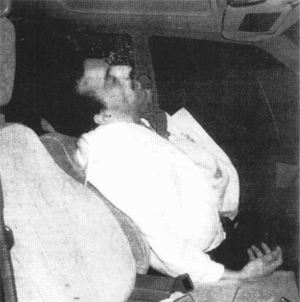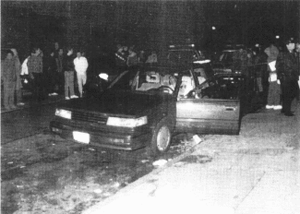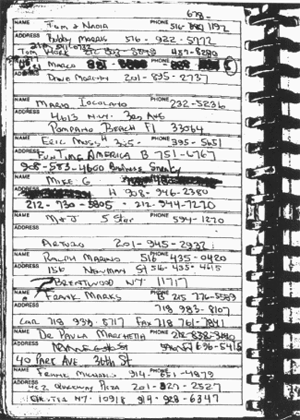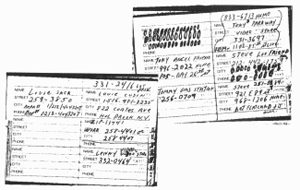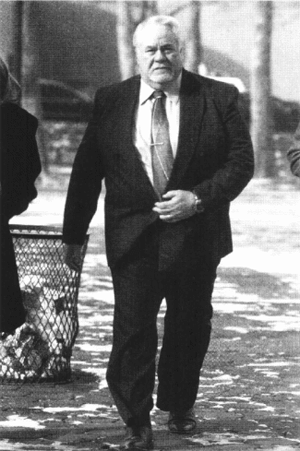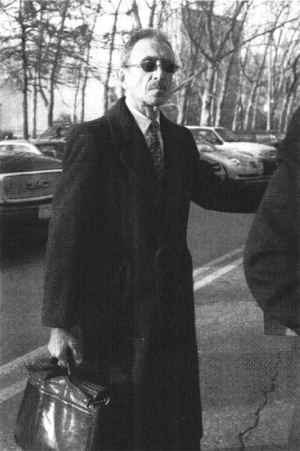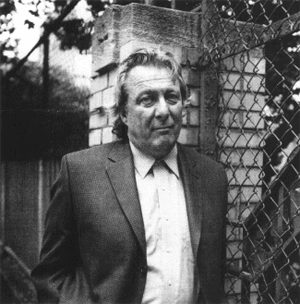CHAPTER SIX: "GODFATHERS OF THE NYPD"
Oldham's return to Major Case in the spring of 1992 after the Born to Kill prosecution did not go smoothly. Working on BTK he had learned to make a RICO case. He had pursued a high-profile OC investigation to its conclusion. He had helped destroy one of the most dangerous gangs in the city. But he had also been assigned outside the Major Case Squad and that did not sit well with his superior officers. They wanted to maintain control over their investigations. "If you're going to do another federal case, do it from here or don't bother to come back," Oldham was told by Lieutenant Joseph Pollini his first day back in the squad room after the trial was over. "Do your cases from here. Don't take them outside."
The acquisition of expertise and experience didn't necessarily mean Oldham's new skills would be put to use by the NYPD. The institution didn't operate that way. Instead of being assigned another organized crime investigation, Oldham was told to solve bank robberies and help other detectives with their cases. He would have to again find and fight for his own cases.
With the mafia on the run, law enforcement once again turned to the investigation of lower-level wiseguys -- small-time scammers, bookies, loan sharks. As part of his duties assisting Major Case detectives, Oldham was routinely assigned to perform apprehensions on other people's cases. Most of the detectives in Major Case were older and overweight, and many were in poor physical shape. That spring, one had suffered a heart attack as he opened the door of his car in a parking lot in Queens. By comparison, at the age of thirty-eight, Oldham was young and fit. One of the "designated runners" for Major Case, he was sent to make arrests in the event a suspect bolted and had to be chased by foot.
That spring something occurred -- seemingly out of the blue -- that caught Oldham's attention and pointed to the dangerous, deep connections between the mafia and the NYPD. The event was the publication of a book about the cultures of the police department and organized crime. Mafia Cop: The Story of an Honest Cop Whose Family Was the Mob would change the path of Oldham's career and life. The author was a retired NYPD detective named Louis Eppolito. He was the best friend of OCHU member Detective Stephen Caracappa.
The memoir, co-authored by journalist Bob Drury, arrived in bookstores with little fanfare. Inside the Major Case squad room, however, it was widely read -- and even more widely reviewed. "Eppolito had retired a couple of years earlier but he was still well known by reputation as a detective who straddled the fence. He was a conspicuous cop -- he dressed like a wiseguy, he was brash and brazen. Eppolito imagined himself as the man in the middle caught between the mafia and the police department. But there was no middle. There were two sides, and you had to pick a side. The book caused a stir in headquarters."
Oldham was drawn to Mafia Cop because of Caracappa. He knew that Caracappa and Eppolito were not only good friends but had been partners. Oldham had met Eppolito in passing. Before Eppolito retired in 1990, Oldham had seen him visit Caracappa in the Major Case office a number of times. Oldham had also seen him in the Six-Three Precinct in Bensonhurst, Brooklyn, where Eppolito worked as a detective for many years. It seemed to Oldham the attention from the book made Caracappa uncomfortable. A first-grade detective like Caracappa was the insider's insider on the mafia. "If anyone should want to be insulated from the kind of associations Eppolito called attention to, it was Caracappa. It was curious to me that a sharp cop with a reputation like Caracappa's would hang out with a schmuck like Eppolito who not only boasted about his connections to organized crime -- he wrote a book about them.
"Eppolito was a 'name' in the force, like Caracappa, a detective who stood out from the pack. Eppolito was a former Mr. New York bodybuilder. He was heavyset, with a thick mustache and a taste for gold chains. He had a reputation for his love of snakes, the deadlier the better. For years he was the informal one-man Reptile Squad for the NYPD. If a call came in needing a response to snakes or crocodiles or lizards, any cold-blooded vertebrates, Eppolito got the call. Detectives Caracappa and Eppolito were inseparable but they were a study in contrasts. Caracappa was thin, quiet, watchful. Eppolito was fat, loud, foul-mouthed. Caracappa was the go-to guy in Major Case. Caracappa's discretion was his defining characteristic. It seemed he never gave anything up, or away. Eppolito didn't try to hide his mafia background. He was defiant. He strutted around like a goodfella cop."
One Sunday afternoon in June, Oldham went in search of the book. He found it in the Strand, the used bookstore at the corner of Broadway and 12th Street. In the dank and cramped basement there was a section marked "Crime," where books about cops and criminals were shelved together -- the two sides of the same story. He picked up the book and opened it. "There are no words to define my feelings for Detective Steve Caracappa, my closest and dearest friend," Eppolito wrote in his author's note. Oldham flipped to the photographs in the middle of the book, searching for one that he had been told infuriated Caracappa. The picture showed Detectives Caracappa and Eppolito as partners in the Brooklyn Robbery Squad in the late seventies. The two detectives were sitting in a squad room, Eppolito's tie undone, Caracappa dressed in a dark blazer and dark sweater. Both smiled broadly. The feeling of the photo was intimate, relaxed, confident. The caption read, "Steve saved Louie from a homicide rap by pulling him off a beaten 'perp.''' The heading of the photograph read, "The two Godfathers of the NYPD.
Oldham knew many of the lawyers and cops and reporters acknowledged and thanked by the authors -- Hugh Mo, deputy commissioner of trials for the NYPD; Mark Feldman from the Brooklyn DA's Office, Doug LeVien, a retired NYPD detective described in Mafia Cop as "the fixer"; the journalist Jerry Capeci; and Wiseguy author Nick Pileggi. In the relatively small world of organized crime and law enforcement in New York they were all well-known figures. The cover of Mafia Cop purported to be a photograph of Eppolito's medals. It showed the Combat Cross and two NYPD Medals of Valor -- two of the highest honors bestowed on police officers, often awarded posthumously. There was also a row of Meritorious Performance of Duty medals and Exceptional Performance of Duty medals displayed.
"On the face of it, the cover looked impressive. But if you understood NYPD honors it told a different story. The Meritorious and Exceptional awards had been given to him dozens of times - an extremely unusual number. Working cops were suspicious of a guy with a ton of medals. I never met a cop with as many as Eppolito. Eppolito claimed to be the eleventh most decorated cop in the history of the NYPD. It could have been true, but every cop knows what a meaningless claim that was. For a police officer to receive the medals and commendations of which Eppolito was so proud he had to spend a lot of time writing up his own Requests for Departmental Recognition. Other cops didn't recommend a cop for recognition. He had to do it himself. Eppolito had to spend hours sitting at a table documenting his heroism. There were some cops who couldn't help but write about themselves and their exploits on duty. Traditionally, they gave their supervisor a bottle of liquor to sign the request.
"The practice got so bad defense attorneys began to subpoena Departmental Recognition Requests to impeach police officers as witnesses. The stories the cops told were at such odds with the likely truth -- the accounts of police bravery so improbable -- during cross-examination the police officer on the stand would quickly look either like Superman or a self-aggrandizing prevaricator. It was great for defendants. In the end headquarters stopped allowing cops to write up their requests until the conclusion of the trial. Displaying your medals as proof of valor was the kind of thing any cop looking at the book cover would instantly question."
A BOY'S LIFE
The week Oldham bought Mafia Cop, he was assigned to assist in the apprehension of a mobster named Giacomo "Fat Larry" Barnao. Oldham and his partner, Detective Kevin Butt, had been given the rap sheet and a black-and-white Polaroid ("a wet") of Barnao. Oldham and Butt parked under the elevated subway train in Bensonhurst at the corner of 86th Street and 18th Avenue opposite an off-track betting shop and waited for Fat Larry. Oldham read Mafia Cop as he sat. The neighborhood surrounding the stakeout was where much of Eppolito's book was set. The commercial strip, with low-rent storefronts, Italian bakeries, and nightclubs, seemed just another Brooklyn corner but the street was storied with mafia legends.
"I could look around and see the places Eppolito mentioned. I didn't have to work hard to imagine what he was writing about. A lot of wiseguys got killed on those streets over the years. It was the nerve center of the Brooklyn mafia. All five families were represented on 18th Avenue. At that corner, Johnny Gambino had a pastry shop where he dealt drugs. 'Baldo' Amato and Cesare Bonventre, both Bonanno associates, had a palatial marble and granite cafe where they held high-stakes games of baccarat. The Sicilian factions were there as well -- 'greaseballs' they were called, or 'zips.' The guy we wanted to arrest, Fat Larry, ran a car and limousine service, a front for his shylock and bookkeeping businesses. Fat Larry was up on a gambling charge. The collar wasn't ours. The two detectives working the case were in their own car a block away. It was just a matter of waiting for Fat Larry to turn up."
According to Mafia Cop, Oldham read, Eppolito's family wasn't "associated" with the mafia -- it was the mafia. His grandfather, Luigi "Diamond Louie" Eppolito, was an immigrant who had arrived in America in 1901. Finding his footing in New York, Diamond Louie quickly became a friend of Lucky Luciano, one of the founders of the American mafia. Diamond Louie set up a stall in a jewelry store on Canal Street. The legitimate business was a front. In reality, Diamond Louie stole jewelry from Hasidic Jews, fenced swag, and ran a string of pimps and whores. In time, three of his four sons went into the family business: the Gambino crime family. Freddy "the Sheik" Eppolito, the oldest and toughest of the boys, was a flashy Tyrone Power lookalike who rose to underboss of the Gambinos. Jimmy "the Clam" Eppolito was a wiseguy and noted hit man. Louis Eppolito's father, Ralph, was known as "Fat the Gangster" on the streets of the Pigtown section of Brooklyn. After Fat the Gangster married a girl named Tess Mandelino, Eppolito wrote, mafia boss Vito Genovese bought a round of champagne in his bar to celebrate.
As a mobster, Fat the Gangster's deepest contempt was reserved for mobsters who became rats. When Genovese soldier Joseph "Joe Cargo" Valachi testified before a Senate commission on organized crime in October 1963, Valachi became the first made man to acknowledge the existence of the mafia. At the time, the Italian underworld was unknown to mainstream America. Valachi's description of the rituals and the structure of cosa nostra were broadcast live nationwide and caused a sensation in the press. The "mafia" became a household word. "Valachi was everything my father hated in a man," Eppolito wrote. "Ralph would sit in front of the television and have apoplexy as Valachi named names, lots of them friends of my father's. My old man used the Valachi hearings as a kind of teaching tool on what not to do. Whatever was said in our home stayed in our home." Despite the code of secrecy, Eppolito's mother, Tess, was quoted extensively in Mafia Cop. She told the story of her husband murdering John "Johnny Roberts" Robilotto, a nightclub owner and fellow Gambino suspected of being a snitch. "Ralph never told me in so many words, but it was Jimmy and Ralph who did Johnny Roberts. That's what got him his button. They said Johnny Roberts was a rat, and if there was anything Ralph couldn't stand, it was a rat. They were all the same that way. I guess to them, that made murder okay."
Only the NYPD received a like share of Fat the Gangster's contempt. In the fifties and sixties, South Brooklyn was "a veritable sewer of police pads and payoffs," Eppolito wrote. Bribes could buy a mobster out of most trouble. As a boy, Eppolito recalled, he carried bribes to precinct cops, payoffs to ensure Fat the Gangster's dice and poker games were left alone. "The cops were crumbs, and that's why Ralph detested them so. I don't know who he hated more, cops or rats," Tess said. Eppolito added, "The mere sight of a police officer's uniform was enough to drive him into an uncontrollable rage."
Violence was ingrained in Eppolito's life -- first as victim and then as victimizer. As a child, he wrote, he was routinely beaten by his father. Eppolito described how he learned from his father how to handle himself on the streets of Brooklyn. On his way to grammar school as an eight-year-old he was attacked by a bully from the sixth grade. Eppolito said he was too afraid to defend himself. That evening, Fat the Gangster told his son to fight back. "Hit him one good shot, bloody his nose, take out a few teeth," the father advised. "A hard shot to the nose will break it all the time." When confronted by the bully the next day, Eppolito grabbed him by the throat and with his other hand broke his nose. "I kept smacking him until I thought he was going to pass out. His blood was all over the place. I had my hand on his belt and was about to punch him again when I heard a loud scream from behind me. 'Louie, Louie.' I turned around and saw my father. He looked at me for a split second before yelling, 'Fuck him up, Louie. Break his fucking face.' I couldn't believe it. So I kept on pummeling the kid, trying to break his fucking face."
Preparing for confirmation in the Catholic Church at the age of nine, Louie was slapped by his priest for making a commotion during instruction. Fat the Gangster went to the rectory to confront Father Pulio about hitting his son. At the church, Fat the Gangster sucker-punched the priest. "His jaw shattered. The teeth, everything, all over the sidewalk." Eppolito marveled at the incident and described how his father had lunged at the priest, screaming, "'You're nothing but a piece of shit priest. And if you ever, ever put your hands on my son again, I'll fucking kill you.''' Eppolito senior reportedly followed up on the bloody demonstration with some nuggets of wisdom on the fundamentals of mob semantics: "During the drive back to Midwood Street, Ralph explained to his son the difference between killing someone -- that is, beating them bad -- and killing someone dead. Which is exactly what it sounds like. It was another Mafia lesson for Louie."
CLASS OF '69
According to Eppolito, his father paid great attention to "honor." Life, Fat the Gangster believed, was about maintaining the mafia's traditions of silence and respect. Eppolito's mother, Tess, was more ambivalent about the attractions of the mob than her husband and son. Murder, Tess understood, was not a matter of honor or respect. In Mafia Cop she recalled her husband disappearing in the middle of the night. The next day, with a sense of disbelief, she would pick up the newspaper and see a story about another mob murder. She explained how she couldn't imagine her husband being involved in any of the reported murders. ''I'd say to myself, 'It couldn't be my Ralph involved. He was here all afternoon. And so was his brother Jimmy.' But then I'd realize that these guys were night crawlers, and who knows what was going on while the kids and I were asleep." Tess didn't agree with Ralph's credo: "Nobody never gets killed for no reason." "But nobody has a right to take a life," Tess pointed out. ''I'd mention that to Ralph. He'd just shrug me off, or say it was a 'matter of honor.'''
At the age of eleven, Louie Eppolito took a job as a pizza delivery boy. Teenagers in a gang called the Pigtown Boys hung out at the pizzeria. The prepubescent Eppolito allowed them to conceal their weapons -- switchblades and zip guns -- in his pizza boxes to avoid detection by the police. Soon, Louie started to help his father at the Grand Mark Bar, located at the intersection of St. Mark's Avenue and Grand Avenue in the Bedford-Stuyvesant section of Brooklyn. The bar catered to goodfellas and longshoremen. Next door the Eppolito brothers held all-night sessions playing a fast and furious Italian card game called ziginette. "It was here that Louie Eppolito's Mafia education began in earnest," Mafia Cop reported. Driving the rounds every week with his father in a black Chrysler New Yorker to collect debts and pay respects, Eppolito met the many made men of Bensonhurst. Joe Profaci, an olive oil importer and eminence in organized crime, advised Eppolito to emulate his father. "You got to grow up and have a lot of honor like your father," he said. "If you want to grow up right, grow up like your daddy." Eppolito's mother thought her son had the makings of an outstanding mobster. "Personally, I think he would have made a terrific member of the Mafia. He was fearless, and he loved to fight," she opined.
Eppolito agreed with his mother's assessment. In Mafia Cop, Eppolito imagined himself as a larger-than-life character. He described himself in high school as "a little fucking Casanova." At Erasmus Hall High School in Flatbush, Eppolito described himself as "the biggest stud they ever had." On one occasion, a dalliance with a girl led to Eppolito's receiving a beating from a local gang. Eppolito claimed he took seventy stitches to the face, fifty in his hands, and that a quarter of his tongue had to be sewn together. Eppolito wrote he soon sought one of the attackers and took revenge, sucker-punching a boy from the rival gang. The fact that the kid was unconscious didn't stop the brutal assault. "I knew at the moment that I was punching out this kid that I was hurting him bad. I also knew that I was going to kill him. He was unconscious. I was holding him up and smashing his face. Suddenly a hand grabbed my fist in mid-flight." Fat the Gangster told his son to stop -- enough punishment had been exacted. The father was proud of his son. "You're no pussy," he said, "you blasted his face off and he never saw it coming."
Walking to high school, Eppolito was tailed by FBI agents investigating his father and his uncle Freddy and their connections to the heroin trafficking business. To young Louie Eppolito, FBI stood for Forever Bothering the Italians. When the agents accused Eppolito of withholding information he responded as he had been taught by Fat the Gangster. "I told Federal Agent Thompson to go fuck himself," Eppolito recalled. "Fucking feds. You can see how my father's irrational loathing of anyone with a badge could wear off on his son." Nonetheless, Eppolito displayed an early attraction to wielding authority himself. A sickly child, struck by rheumatic fever, he became a teenage bodybuilder who enjoyed throwing his weight around. On social occasions, Eppolito assigned himself the role of teenage party police. At a Sweet Sixteen party Eppolito said he caught a kid selling Seconals. Eppolito seized the drugs and beat the boy. The boy's older brother came to the party. Eppolito said he beat him, too. Finally Booty Romano, a twenty-three-year-old cousin, arrived and kicked Eppolito through a plate-glass window. "With typical aplomb," Mafia Cop reported, "Louie got to his feet, dusted the shards of glass from his clothes, and knocked every single tooth out of the front of the guy's mouth." Arrested and taken to the police station, Eppolito called home. His father answered and started to laugh as his son explained what had happened. "It turned out that, thirty years earlier, Booty Romano's old man had slugged my dad with a baseball bat, and my father had turned around and knocked the teeth out of his mouth. Like father, like son," Eppolito declared.
Sitting in stakeout for hours at a stretch waiting on Fat Larry, it was impossible for Oldham not to compare the books Detectives Caracappa and Eppolito had authored about the mafia -- Mafia Cop by Eppolito and the OCHU "homicide book" Caracappa compiled at Major Case. The former partners were both deeply steeped in mafia culture. But the two books were polar opposites, like the men. The OCHU homicide book Caracappa created at Major Case was distinguished by what it didn't include. It was a compendium of a decade's worth of mob homicides ranging from the death of Colombo member Ralph Spero in 1980 to the professional hit on a Gambino captain named Eddie Lino on the Belt Parkway in 1990. The recitation of events surrounding the murders was precise and spare. The facts, and only the most basic facts, were provided in staccato police language. Eddie Lino was a notorious gangster, for example, short and tough and involved in mafia politics at the highest level; he ran a scam on New York City school bus companies, "taxing" every child's ride to class every day; he had been brazenly murdered just off the Belt Parkway in the middle of heavy traffic. The intrigue surrounding Lino's murder was directly within Caracappa's knowledge -- how Lino was close to Gotti and one of the shooters in the murder of Gambino boss Paul Castellano. Caracappa could trace Lino's lineage in the Gambinos, as well as his criminal pedigree as a large-scale heroin dealer. Instead of relating any detail, the OCHU homicide book said only, "At the stated T/P/O the victim was shot to death in his auto. The victim was known to the New York City Police Department under NYSID #0765414N and FBI#445409D. The victim was a Gambino Capo who was involved with narcotics."
Mafia Cop, by contrast, reveled in the inner workings of the mafia. Eppolito celebrated his education by Fat the Gangster and the wiseguys of Brooklyn. "Eppolito held an idealized version of cosa nostra. In his mind, the mafia was about honor and respect and family -- not money and betrayal and violence. It was a surprising point of view for a police officer to put forward."
Fat the Gangster, a chain smoker, died of a massive heart attack when Louie was twenty years old. The funeral was held at Vigilante's Funeral Parlor in Brooklyn. A fleet of black limousines filled with wiseguys came to pay respects -- and the FBI took surveillance pictures to record attendance as evidence of organized crime associations. Long before he became a policeman, Eppolito had learned to meet with mobsters secretly, to avoid detection by law enforcement. At midnight, after the FBI agents had left, Eppolito opened a side door to the funeral parlor and greeted the leadership of the Gambino family with two-cheek kisses. "Slips of paper with phone numbers were given to Eppolito," Oldham said, "names he could call for work. Construction, the garment district, the docks, whatever the mafia controlled, whatever Eppolito wanted. As the son of a made man Eppolito thought he would be taken care of by the family. He felt entitled to consideration for an entry-level wiseguy gig: a no-show job, numbers running, truck hijacking. It was how the mafia was supposed to take care of their own. It was Eppolito's birthright."
As expected, a Gambino relative named Johnny "Bath Beach" Oddo set Eppolito up in a union job. Eppolito said he hadn't given much thought to becoming a "junior wise guy" but understood and accepted the choice he was making by taking a job connected to organized crime -- he was setting out to be a mobster, like his father and his father before him. On his first day, the foreman smiled when Eppolito asked what kind of work he would be doing. No work was expected, and so he whiled away the morning doing nothing. His first task came at lunch, when the foreman gave Eppolito a quarter and told him to fetch coffee and the newspaper. The order outraged Eppolito. "Who the fuck you throwing a quarter at?" he growled at the foreman. "Ralph Eppolito's kid don't start out as no gofer. So why don't you take this quarter and shove it up your ass."
Eppolito's sister had married a man from the neighborhood named Al Guarneri -- the same detective in the Six-Three decades later assigned to investigate the attempted murder of Dominic Costa. Young men in their twenties, Eppolito and Guarneri lifted weights together and imagined how life would look from the point of view of a cop. They talked about how they had played cops and robbers as boys. Surprisingly, Eppolito and Guarneri both decided to join the NYPD, despite long family associations with organized crime. For Eppolito the attractions of being a cop were the same as those Fat the Gangster found as a mobster. "Men could be men in this fraternal order," Eppolito wrote. "If the occasion arose where it was necessary to 'beat the shit' out of someone -- a husband who battered his wife, a pimp who slashed his hooker, a purse snatcher who'd run down an old woman -- those opportunities availed themselves regularly." Eppolito wrote that Fat the Gangster "would have killed me himself," had he been alive. He knew the rest of his relatives -- wiseguys like Jimmy the Clam Eppolito and his son Jim-Jim -- might give him the cold shoulder at first. "Blood would eventually tell," Eppolito calculated.
The paths of Steven Caracappa and Louie Eppolito first crossed in the NYPD Police Academy in 1969, when the police force was in crisis. Crime rates had doubled in the previous five years. The murder rate had tripled in the previous three years. Major riots in 1964 and 1968 displayed the department's tenuous grip on order. A wave of criminality not seen since the Roaring Twenties, when Prohibition was in force and gangsters ran speakeasies in defiance of the law, swept over the city. In response, squads specializing in homicide, robbery, and burglary were established. The "911" emergency call system was instituted. The city was under siege. Discipline and order in the NYPD were falling apart at the same time.
"The 'broken window' theory of police work holds that law enforcement tolerating a kid throwing a rock through a window encourages the criminal element in society to believe they can get away with more serious crimes. It was true, as New York discovered during the nineties when the crime rate plummeted after we started prosecuting the little things. But more important, the 'broken window' theory worked inside the police force, too. Cops who got away with taking money from illegal gambling houses concluded they could also get away with more serious crimes. In the late sixties, Frank Serpico couldn't get corruption in the force acknowledged, let alone investigated. Things had reached the point where the heroin recovered in the famous French Connection investigation was being stolen by detectives in the Special Investigations Unit. The French Connection had been one of the greatest cases in the history of narcotics enforcement. By the end of the decade, the heroin seized had been surreptitiously replaced by rotting flour in the property clerk's room in Little Italy."
The NYPD class of 1969 was the biggest in the history of the department, then or since. Thousands of Vietnam War veterans were returning to a city in steep economic decline -- including Stephen Caracappa, who had served in the Army in Vietnam. Tables were set up along Broadway to entice young men walking the street to become cops. With a salary of nearly ten thousand dollars a year, the money was more than most entry-level jobs. Like all city jobs, NYPD benefits -- health care, holiday pay, uniform allowance -- were attractive to the children of first-generation immigrants who had worked blue-collar jobs with no social safety net. Many recruits had never considered becoming policemen, and had little aptitude for the job, but it was so easy to become a cop the offer was hard to turn down. The academy filled with veterans of a dirty foreign war -- not fresh young boys out of high school, as was usually the case. Recruits who were used to Army drill sergeants and the privations of military boot camp considered the NYPD's paramilitary imitation little more than a joke. An atmosphere of near chaos enveloped the class. Fistfights were common -- and more than once escalated into guns being drawn in the locker room and death threats exchanged.
"The city was desperate. If you could walk and talk, if you had two legs and two arms, you were in. Recruits with military experience were used to doing whatever they wanted even though they were in uniform. They weren't going to follow orders. The disorder of the military at the time was transferred to the NYPD and the force had a hard time coping with the culture. Authority was being questioned on every front, and that included inside the academy. As a result, more cops from the class of '69 were eventually thrown off the force or locked up than from any other year."
The NYPD application form was voluminous. It asked about family, immediate and extended, driving history, credit history, the applicant's arrest record, if any, names and addresses of neighbors, schools attended, character references. The formal interview that followed was conducted by the Applicant Investigation Unit. In Mafia Cop, Eppolito said he wrote a long essay explaining his family's history of association with the mafia. The recruiter was astonished at Eppolito's honesty. "Christ, you've got a lot of balls writing down this history," he said. "There isn't anybody in your family who hasn't been in jail." "Except for me," Eppolito said. He wrote, "I think the interviewer admired my audacity, because he passed me on with a recommendation."
The Police Academy was located on East 20th Street in Manhattan in those years. It was a large facility, with a swimming pool and gym, and four floors of classrooms. Recruits were taught law, social science, and police science. Fidelis ad mortem was the motto: Faithful unto death. The class was overwhelmingly male (female officers were known as "police matrons" at the time and carried a special caliber revolver with less recoil) and the building bristled with young men trying to outdo and impress each other. In Mafia Cop Eppolito described how, in one class, a diagram of the Gambino crime family (complete with mug shots) was used as a teaching aid. Eppolito recounted how another classmate called him over to the blackboard and pointed at one of the Gambino soldiers on the chart. "This cadet was a gung-ho hick from Long Island, and I could read the excitement in his face. 'Look, Lou, this guy has the same last name as you.' His mouth dropped open when I told him that he was pointing to my old man."
The class was arranged alphabetically by last name and divided into companies of approximately twenty recruits. With last names beginning with letters in proximity, Caracappa and Eppolito were trained side by side, from roll call at six-thirty in the morning to beers afterward at McSorley's Ale House. It was not hard to imagine how the two young men became friends. Caracappa also came from a working-class Italian-American quarter of the city. He had grown up on Staten Island, in the years before the Verrazano-Narrows Bridge was constructed and the only way to get to the city was by ferry. Isolated geographically, Staten Island had a high concentration of mafia. Growing up, Caracappa was known on the street as "Stevie Aces." He had dropped out of New Dorp High School at the age of sixteen and gone to work as a laborer with his father. In the summer of 1960, at the age of eighteen, Caracappa had been arrested for the burglary of a warehouse on Staten Island. Caracappa and an accomplice had rented a truck and broken into the warehouse to steal more than a thousand dollars' worth of lumber and construction materials. Caracappa was indicted on felony charges. Designated a youthful offender, Caracappa had pleaded guilty to misdemeanor charges and was sentenced to probation.
After Caracappa was interviewed by an officer from the Applicant Investigation Unit, he was disqualified from serving as a police officer because of his criminal record. "There were excellent reasons to keep Caracappa out of the force," Oldham said. "He wasn't stealing the building materials the way a kid might be caught stealing change out of a neighbor's house. It was a commercial burglary, not a boy seeking a thrill. Caracappa was eighteen years old. He knew what he was doing. He wasn't going to use the lumber to build himself a house. He had to have connections to fence the material. The likelihood was that an adult had put him up to it, promising easy money. The burglary had all the hallmarks of a professional job. He pled out to misdemeanor charges, so it wasn't like he was denying he committed the crime. The investigator looked at Caracappa and dinged him -- he wasn't recommended. The decision was a strong indication of how poorly Caracappa explained his involvement in the felony. Even in the class of '69 he didn't make the cut -- not until the decision was overridden by a superior officer. The reasons the investigator was overruled have been lost. Maybe the force was so desperate it stopped using common sense."
Recruitment and Screening
The integrity of the Police Department is related to a large extent on standards that insure its new recruits are honest and able. Rigorous admission standards help accomplish that objective. They also send a message throughout the Department about the absolute sincerity of the Department's commitment to integrity and the special position police officers occupy in our society. Cops must know that not everyone can become a New York City police officer if we want them to have pride in their profession and their Department.
That is not always the case. There is a widespread perception among officers of many ranks that hiring standards have fallen dramatically over the years -- and that virtually anyone can become a New York City police officer.
To assess the adequacy of the Department's recruitment and screening standards and procedures -- and to determine whether we could identify profiles of corruption-prone recruits -- a team of Commission investigators conducted an extensive analysis of the personal backgrounds of approximately four hundred officers dismissed or suspended for corruption or serious misconduct over the past six years. [16] The analysis was based on information from the officers' personnel files, the Department's background investigations, and recommendations and evaluations at the time of application. We also examined for comparative reasons general demographic and background information of random samples of officers and conducted interviews with those responsible for various aspects of recruitment and screening. We are aware of no other analysis of this magnitude ever before conducted by the Department in this area.
Applying a degree of scrutiny absent from many background investigations done by the Department, we concluded that approximately 20 percent of the officers suspended or dismissed should never have been admitted into the Department. This is based merely on information available in these officers' personnel files at the time of hiring. Numerous others should never have been admitted until certain problem areas flagged in their application, which had been ignored, were investigated. For example, 24 percent of the officers dismissed or suspended had a prior criminal arrest record. In many of those cases, there was sufficient information from witnesses, victims, arresting officers, and other sources to call into question the character and ability of the officer -- but the officer was admitted without pursuing these leads. Many other officers were admitted despite youthful offender adjudications on charges as serious as robbery, narcotics and weapons possession, and assault. One officer, for example, had been arrested and indicted for three separate robberies and pleaded guilty to armed robbery in the first degree which was subsequently converted to a youthful offender adjudication. When asked in his application why he committed these crimes, he readily admitted that he committed the robberies for the "thrill" and "excitement" of robbing someone. Eleven years later, he was dismissed for theft.
Overly lax admission criteria are partly responsible for this problem. For example, an applicant with a youthful offender adjudication for a felony is eligible to become a New York City police officer. As a result, applicants with felony assault, weapons, robbery or narcotics charges resulting in either misdemeanor convictions or youthful offender adjudications became police officers despite the underlying gravity of their conduct, only to be dismissed or suspended years later for corruption. Since the Department admits applicants as young as twenty years old and therefore has only a two-year time span in which to evaluate an applicant's adult criminal history, it must take youthful wrongdoing into greater account in admission procedures.
The Commission also found that the Department has routinely admitted applicants to the Department -- and put them on the streets as sworn officers with guns and shields -- before their background checks are complete. Eighty-eight percent of the officers in our study, for example, entered the Police Academy before the completion of their background checks -- and thus prior to a reliable determination that they were fit to be police officers. Approximately one-third of all officers were placed on the streets, before completion of their background investigations. Thus, there is a wealth of vital information that is typically unknown when an officer is given a gun and shield. For example, investigations into an applicant's work history and behavior patterns, including interviews with relatives, neighbors, friends, employers and others, are often not completed until after the applicant becomes a sworn police officer. There is rarely an opportunity, therefore, to check prior job performance, attendance records, gaps in employment or unusual behavior patterns -- all important indicators of a person's fitness to become a police officer.
This is particularly troublesome because by the time recruits have graduated from the Police Academy and become sworn members of the Department, much time, energy and money has been invested in them. Consequently, the focus of the incomplete background investigations shifts from the question of whether the applicant is qualified to be a New York City police officer to how the Department could justify dismissing a sworn police officer which carries a heavier burden of proof.
-- The City of New York -- Commission Report: Commission to Investigate Allegations of Police Corruption and the Anti-Corruption Procedures of the Police Department, by Milton Mollen, Chair
THE ROOKIES
After graduation from the police academy, newly minted Officers Caracappa and Eppolito were sent out on patrol. Eppolito's first assignment was the Six-Three, in Marine Park, Brooklyn -- an area thick with the same mobsters he used to meet with his gangster father on weekends. Fraternizing with members of organized crime was forbidden by NYPD regulations. The department designated certain locations -- bars, clubs, legitimate businesses known to give free goods or services to cops -- as "corruption-prone locations." The reasons for the strictures were obvious: mobsters were expert at corrupting others. "A cop could easily be placed in a compromised position and thus pressured by his mafia associates to start doing a few favors in return for a forgiven gambling debt, or a night in Atlantic City in a comp suite with a couple of hookers and a few bucks for the blackjack tables. It meant that if you were sent to that kind of place on a radio run you had to be accompanied by a supervisor. If you were caught there, you would be brought up on charges. There were places that cops just shouldn't frequent, on or off duty. There were people cops shouldn't hang out with because it gave the impression you were in collusion with them."
Even as a rookie policeman, Eppolito ignored these fundamental tenets of the NYPD. He continued to pay his respects to gangsters like Colombo captain James "Jimmy Brown" Clemenza as he drove by in his patrol car. "Hell, I figured, who was it going to hurt to stop and commiserate with an old Mustache Pete about his lumbago?" From the start of his career, Eppolito began to make appearances on FBI surveillance tapes, consorting with organized crime figures.
During the course of a law enforcement career, even one lasting decades, most policemen don't use their firearms even once. Discharging a weapon in an urban environment is a last resort. In his first six months in the NYPD, Eppolito was involved in two shootouts. His policy, Eppolito wrote, was direct: "Shoot first and ask questions later." As a patrolman, Eppolito claimed he had a "sixth sense." At a glance he could tell if something was wrong with a person or a situation. Seeing a man lope across a street once, catching sight of a bead of sweat on the nape of the man's neck, Eppolito decided to pull his pistol and call the man to a halt. According to Eppolito, the instant he 'nabbed' the man, a bank alarm sounded across the street. Eppolito bragged, "I was all over the television news that night explaining my 'sixth sense' to the tabloid and TV reporters. The newsmen in New York like to think of themselves as a cynical bunch, but, in truth, they eat that stuff up."
"Doing God's work" was a common way for police officers to describe their efforts -- dispensing rough justice, making sure the right thing was done, keeping the innocent safe. But in the NYPD every young cop quickly learned that sometimes the law didn't allow for justice to be done. The nature of human affairs and an imperfect legal system on occasion worked against fairness. In frustration, cops sometimes took the law into their own hands. Oldham had done it himself. But the vigilante justice portrayed by Eppolito in Mafia Cop was alien to Oldham. A young woman living in the Six-Three was assaulted by her spouse and Eppolito took the call. Rather than arrest the husband, Eppolito returned when he was off duty, snuck into the woman's yard, and rattled the garbage cans to lure the man out. Eppolito was wearing a ski mask to hide his face. When the man came outside, Eppolito hit him in the throat with a lead pipe. He hit the husband in the throat again and again and again, he wrote. Eppolito said he had invented a story to disguise the fact that it was a cop committing the assault. He had rehearsed his lines to make his performance convincing. "Look motherfucker," he said to the man. "My kid goes to school with your kid, and I hear you've been beating your wife. My father beat my mother to death, and any man who beats his wife has got to answer to me." Eppolito knocked the guy out and ran into the night.
"To me, that was ridiculous and insane," Oldham recalled. "Why not bust the guy? Why did Eppolito wear the disguise? Didn't he have anything better to do with his time off? Hitting a man in the throat with an iron pipe might kill him. Eppolito's story had nothing to do with police work. It had nothing to do with justice. It was about Eppolito."
When Eppolito encountered an abused wife in the course of his duties, he boasted, he immediately tried to bed her. "Every time we went on a call where a husband smacked his wife, I went back that night and smacked it to her, too. Battered wives were the most vulnerable. They needed a crutch to lean on, especially if that crutch just put the fear of God in their husbands." Once, when Eppolito was called to a domestic disturbance, the husband ripped the young cop's uniform shirt while trying to get at his wife. "I proceeded to show him what respect for the law was all about," Eppolito wrote. When the man sued, claiming Eppolito had threatened to kill him, Eppolito challenged the man to a fight in a nearby park. "He was a tough son of a bitch, I'll give him that," Eppolito reported. Eppolito claimed to have nearly choked the man to death. Incredibly, the incident offered Eppolito an opportunity to celebrate his exploits in a different area. He said he had an affair with the man's wife. "Kathy, who had a body she loved to show off, became a Playboy bunny. She was a cop's dream -- until she'd cry and tell me how much she loved me. I knew deep down there was no way in the world I'd consider throwing a ring on this one's finger. 1'd drop by her house on the way to a night shift for a quick bang, but that was as far as it got. That was as far as it got with scores of them."
Divorced early from his first wife, with whom he had a son, Louis Jr., Eppolito met his second wife, Fran, on vacation in Puerto Rico. "Louie came on to me with that 1'm-going-to-marry-you stuff and I said to myself, 'Oh yeah, just you,''' Fran was quoted saying in Mafia Cop. "From the moment I met him I had a feeling the guy wasn't being honest with me. Just intuition." Eppolito, for his part, described Fran as "the best built girl I had ever seen, a bod that just knocked my socks off." Doo-wop music was Eppolito's passion and he courted Fran by taking her to mobbed-up Bensonhurst nightclubs like El Dante and the Gambino-controlled Plaza Suite to see the Mellow Kings and the Platters. The couple were ushered to front-row tables by dapperly dressed doormen, Fran recalled, Eppolito stopping to exchange two-cheek kisses with mafia associates of his father and uncles. Eppolito told Fran they were wiseguys he had known all his life. "Deep down I saw the longing in Louie," Fran said. "He was trying to be a good cop, he was trying to stay away, but the pull was sometimes just too strong." Their wedding was held at the Pisa catering hall in Bensonhurst, the bill reduced to less than half the normal price thanks to Eppolito's Gambino connections. There was a table set aside for organized crime figures. Eppolito had the band play the theme from The Godfather during the reception.
On three different occasions during the late seventies Eppolito arranged for parties to celebrate his promotion to detective, and three times the parties were canceled as he was passed over. Teamed with a slight and short patrolman named Jimmy McCafferty, Eppolito claimed they acquired a violent reputation on the streets of the Six-Three. Known as Atlas and Little Jim, Eppolito claimed the partners were baseball superstars when it came to wielding their nightsticks. Called before the Civilian Complaint Review Board if a "citizen" had the temerity to register a grievance, Eppolito said he and his partner followed one rule: "We lied. Both our daddies had taught us that." Eppolito's view on the use of deadly force as a policeman was simple: "The only good perp is a dead perp." It wasn't long before Eppolito killed his first man -- "ventilated the perp," as he put it. "I learned something about myself in that gun fight. I not only had the capacity to kill, I have the capacity to forget about it, to not let it bother me."

